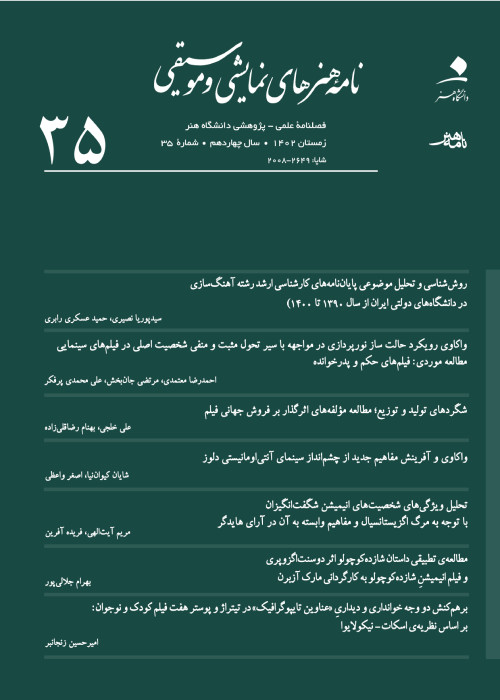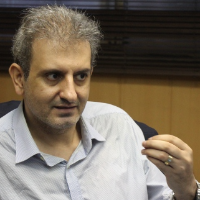Knowledge and Modern Cinema An analytical look at Michelangelo Antonioni's Trio
The purpose of this article is to identify modernist factors in Michelangelo Antonioni’s trio. Modern filmmakers tried to reflect the Zeitgeist in their work. They criticised their society by detaching, undermining or adding some components of classic and institutionalized forms in cinema to clear the cover of routine life. They consciously challenged the stabilized contemporary cinematic conventions to make the audience see the cliché conception from a new perspective, to recognize a phenomenon called the function of art. Their works extended the audience’s knowledge from herself and her world. In this article, using the contextual analysis, some formal devices are pointed out by which filmmakers used to reach their goals. Michelangelo Antonioni (1912-2007) -as a modernist filmmaker, like an archaeologist tried to explore and dig the materials of his times to show that there are something deep beneath those surfaces. He knew that he should find the proper language to depict the complications of life. So he felt the necessity to change the artificial mechanism of the dominant cinema. He revised the mainstream cinema to criticize his society, to show the sickness of things, to search for a sort of remedy. And when he can’t find any, he tries to pose the questions as best as he can. Reproduction is not what he aims for, but reconstruction is what he is looking for. That’s why he shows his dissatisfaction with the conventional forms of narration in his films. To avoid following the well-trodden paths, originality is important to defamiliarise. Revising the notions of space, time, and storytelling is vital to achieve this goal. So the relationship between characters and their environment becomes crucial in his films. Characters are in constant contact with everyday objects, buildings, and materials. Space is as important as human beings. That’s why he always tries to find Objective Correlative for his characters. His camera lingers on things, settings and characters to draw their true essence, to go beyond what they show. His unavoidable ambiguity and open ended stories are justified by the very nature of these relationships in those films. Ambiguity rises from the situations that the characters confront in their society and their life. By following his existential quest and commitment, the filmmaker tries to avoid the imposed ending to resolve the characters’ psychological conflicts. So he succeeds in depicting the emotional crisis and alienation of his characters in a modern world. Antonioni’s existential discourse becomes a running theme in his Trio. The filmmaker selects the proper form to criticize the monotonous pace and rotten values of life in modern societies so that the alert audience can gain knowledge and awareness. The findings may be useful in recognizing the similar devices in other modrn filmmakers’ ouvre, and, therefore leading to a comprehensive picture of the mechanism in such films.
- حق عضویت دریافتی صرف حمایت از نشریات عضو و نگهداری، تکمیل و توسعه مگیران میشود.
- پرداخت حق اشتراک و دانلود مقالات اجازه بازنشر آن در سایر رسانههای چاپی و دیجیتال را به کاربر نمیدهد.



